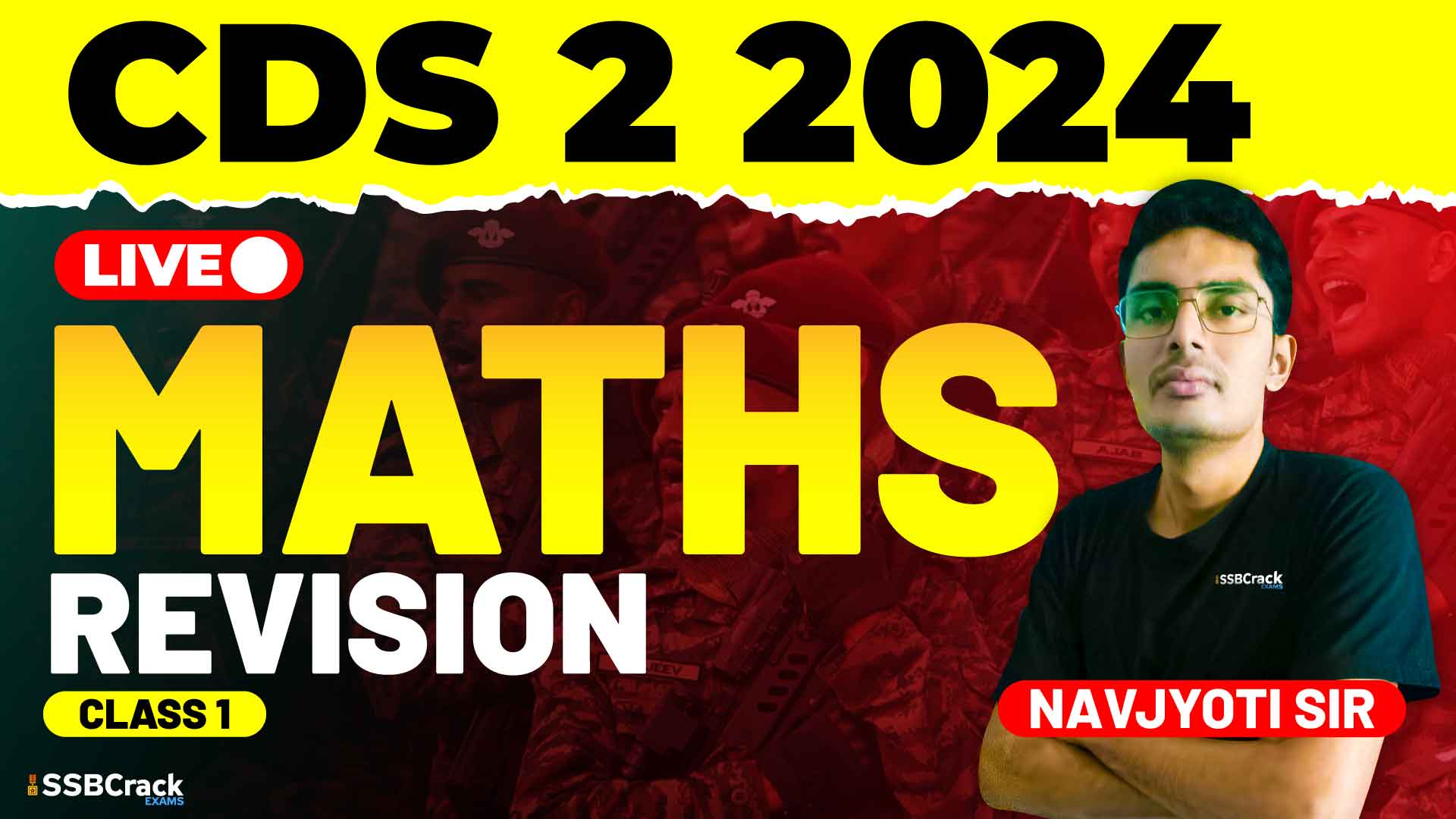Preparation for the Combined Defence Services (CDS) Exam involves a thorough understanding of various topics in Elementary Mathematics. One such crucial topic is percentages. Recently, a dedicated revision class focused on practicing multiple-choice questions (MCQs) on percentages, emphasizing strategies to tackle these problems effectively in the context of the CDS Exam. This article will outline the key aspects covered in the class, share strategies for solving percentage-based MCQs, and highlight the importance of this topic in the CDS Exam.
Importance of Percentages in the CDS Exam
Percentages are a fundamental mathematical concept that appears frequently in various competitive exams, including the CDS Exam. Understanding percentages is essential because it is applied in various real-life scenarios and other mathematical topics like profit and loss, interest calculations, and data interpretation. In the CDS Exam, percentage-based questions test a candidate’s numerical ability and problem-solving skills, making it crucial to master this topic.
Key Concepts in Percentages
The class covered several essential concepts related to percentages, providing students with a comprehensive understanding and practical application through MCQs. Here are the main topics discussed:
- Basic Definition of Percentages: Understanding what a percentage represents and how to convert between percentages, fractions, and decimals.
- Percentage Increase and Decrease: Calculating the increase or decrease in a quantity as a percentage of its original value.
- Finding the Whole from a Percentage: Determining the original amount when a percentage of that amount is given.
- Percentage Comparison: Comparing different quantities by converting them into percentages.
- Applications of Percentages: Solving problems related to profit and loss, discounts, interest, and data interpretation.
Strategies for Solving Percentage-Based MCQs
Effectively solving percentage-based MCQs requires a combination of mathematical understanding and strategic approaches. Here are some strategies to tackle these problems efficiently:
- Understand the Question: Carefully read the question to identify what is being asked. Determine whether you need to find a percentage, the whole, or compare percentages.
- Use Simple Proportions: Set up simple proportions to relate the given information to what you need to find. This approach is particularly useful for finding the whole from a percentage.
- Convert Between Forms: Be comfortable converting between percentages, fractions, and decimals, as this can simplify calculations.
- Break Down Complex Problems: For problems involving multiple steps, break them down into smaller, manageable parts. Solve each part step-by-step.
- Estimate When Possible: Use estimation to quickly assess whether your answer is reasonable, especially for questions involving percentage increases or decreases.
- Practice Regularly: Regular practice with a variety of MCQs will help you become familiar with different types of percentage problems and improve your speed and accuracy.
Importance of Regular Practice
Regular practice of MCQs is vital for mastering percentage-based questions. By solving a variety of problems, you can familiarize yourself with different question formats and develop a deeper understanding of how percentages are applied. Additionally, practicing under timed conditions can help improve your speed and accuracy, which is crucial for competitive exams like the CDS.
Conclusion
Percentages are a crucial topic in the Elementary Mathematics paper of the CDS Exam. The recent class dedicated to this topic provided a comprehensive review of key concepts and extensive practice with MCQs. Understanding percentages and effectively solving related problems can significantly enhance your numerical ability and problem-solving skills, contributing to your overall success in the CDS Exam.
By incorporating the strategies discussed in this article and consistently practicing MCQs, you can build a solid foundation in percentages and approach the CDS Exam with confidence. Remember, mastering percentages not only helps in solving direct percentage problems but also in tackling a wide range of mathematical challenges that you may encounter in the exam.







